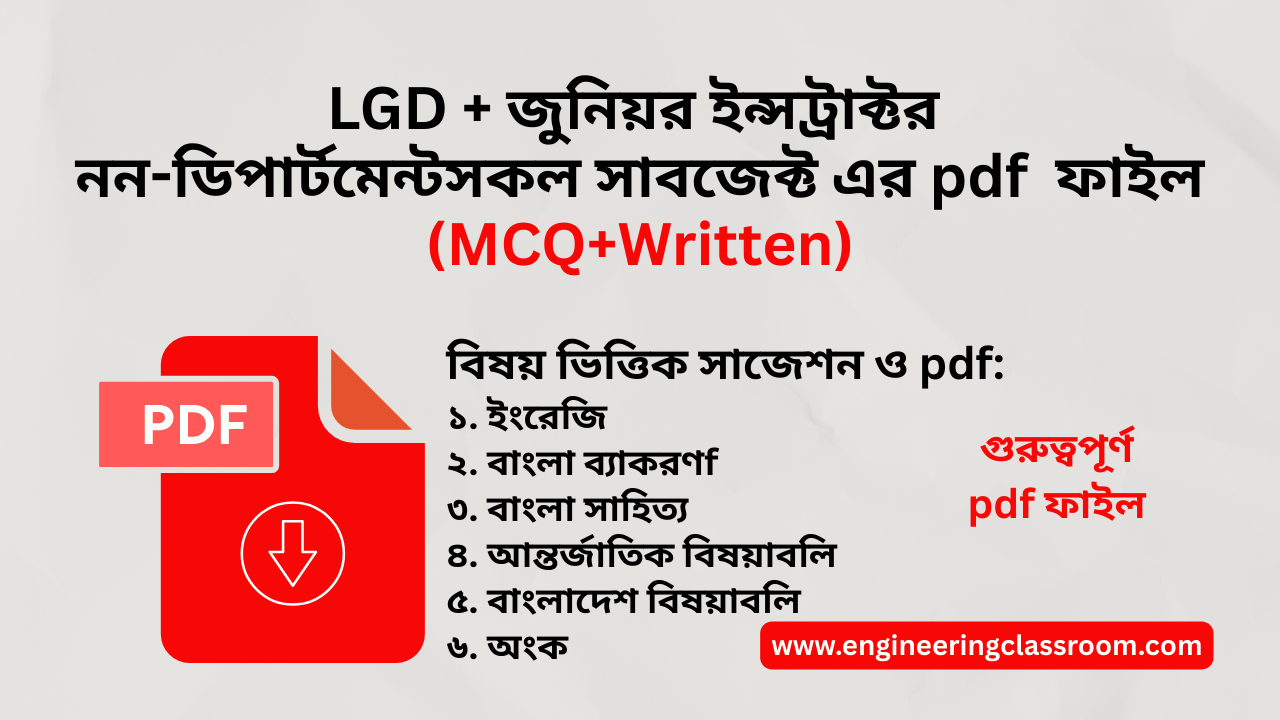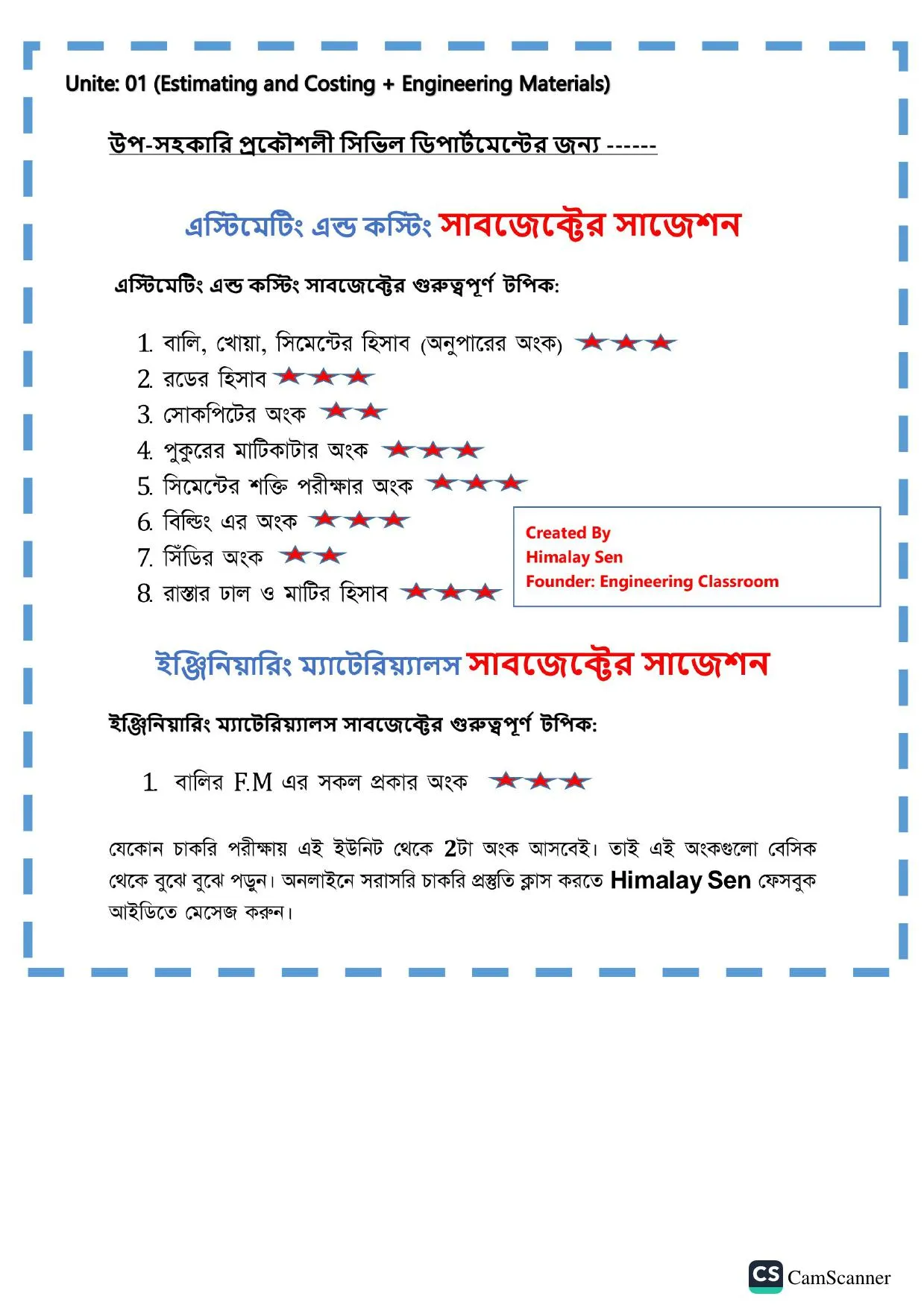MCQ
41. A cylindrical specimen of saturated soil failed under an axial vertical stress of 100kN/m² when it was laterally unconfmed. The failure plane was inclined to the horizontal plane at an angle of 45". The values of cohesion and angle of internal friction for the soil are respectively
0.5 N/mm² and 30°
0.05 N/mm² and 0"
0.2 N/mm² and 0"
0.05 N/mm² and 45"
42. Contact pressure beneath a rigid footing resting on cohesive soil is
Less at edges compared to middle
More at edges compared to middle
Uniform throughout
None of the above
43. 1 2 with the normal to the interface of the soils having permeabilities k1, k2 before and after deflection. According to the law of deflection of the flow lines at the interface of the dissimilar soils
12=k1/k2
12=k1/k2
12=k1/k2
21=k1/k2
44. The pressure that builds up in pore water due to load increment on the soil, is termed
Excess pore pressure
Excess hydrostatic pressure
Hydrodynamic pressure
All the above
45. A soil mass is said to be in plastic equilibrium if
It is stressed to maximum
It is on the verge of failure
It is in plastic stage
It starts flowing
46. Select the incorrect statement.
Effective cohesion of a soil can never have a negative value.
Effective angle of internal friction for coarse grained soils is rarely below 30".
Effective angle of internal friction for a soil increases as state of compactness increases.
Effective angle of internal friction is a complicated function of mineralogy and clay size content.
47. If is specific gravity of sand particles, is porosity, the critically hydraulic gradient
ic (G+1)/(1-e)
ic (G+1)/(1+e)
ic(G-1)/(1+e)
ic = (G-1)/(1-e)
48. The Mohr's straight theory is based on the following fact:
Material fails essentially by shear
Ultimate strength of the material is determined by the stress in the plane of slip
Failure criterion is independent of the intermediate principal stress
All the above
49. Pile foundations are generally preferred to for
Bridge foundations
Sky scrapper buildings
Residential buildings
Runways
50. The weight of a container is and that of container with soil simple, is. If the weight of the container and oven dried soil sample is W3, the moisture content of the soil, is
[(-W3)/(W3-)) x 100
[(W3-)/(-)] × 100
[(-)/(-W3)) x 100
[(-)/(-W3)) x 100
51. In a purely cohesive soil, the critical centre lies at the intersection of
Perpendicular bisector of slope and the locus of the centre
Perpendicular drawn at 1/3rd slope from toe and the locus of the centre
Perpendicular drawn at 2/3rd slope from toe and the locus of the centre
Directional angles
52. Rankine's theory of earth pressure assumes that the back of the wall is
Plane and smooth
Plane and rough
Vertical and smooth
Vertical and rough Answer- C
53. Stoke's law states that the velocity at which a grain settles out of suspension, the other factors remaining constant, is dependent upon
Shape of grain
Weight of grain
Size of grain
Shape, size and weight of grain
54. The plasticity of fine soils may be assessed by means of
Dry strength test
Toughness test
Dilatancy test
All of these
55. The critical exist gradient of seepage water in soils, increases with
An increase in specific gravity
A decrease in specific gravity
A decrease in void ratio
Both (a) and (c)
56. The quantity of seepage of water through soils is proportional to
Coefficient of permeability of soil
Total head loss through the soil
Neither (a) nor (b)
Both (a) and (b)
57. Pick up the correct statement from the following:
A soil having pH value less than 7 is an acidic soil
A soil having pH value more than 7 is an acidic soil
A soil containing chemicals for the manufacture of Portland cement is preferred
A soil having pH value more than 7 is an alkaline soil
58. According to Coulomb's wedge theory, the active earth pressure slides the wedge
Down and outwards on a slip surface
Up and inwards on a slip surface
Horizontal upward and parallel to base
Horizontal inward and
59. In a liquid limit test, the moisture content at 10 blows was 70% and that at 100 blows was 20%. The liquid limit of the soil, is
35%
50%
65%
None of these
60. The rise of water table below the foundation influences the bearing capacity of soil mainly by reducing
Cohesion and effective angle of shearing resistance
Cohesion and effective unit weight of soil
Effective unit weight of soil and effective angle of shearing resistance
Effective angle of shearing resistance
















